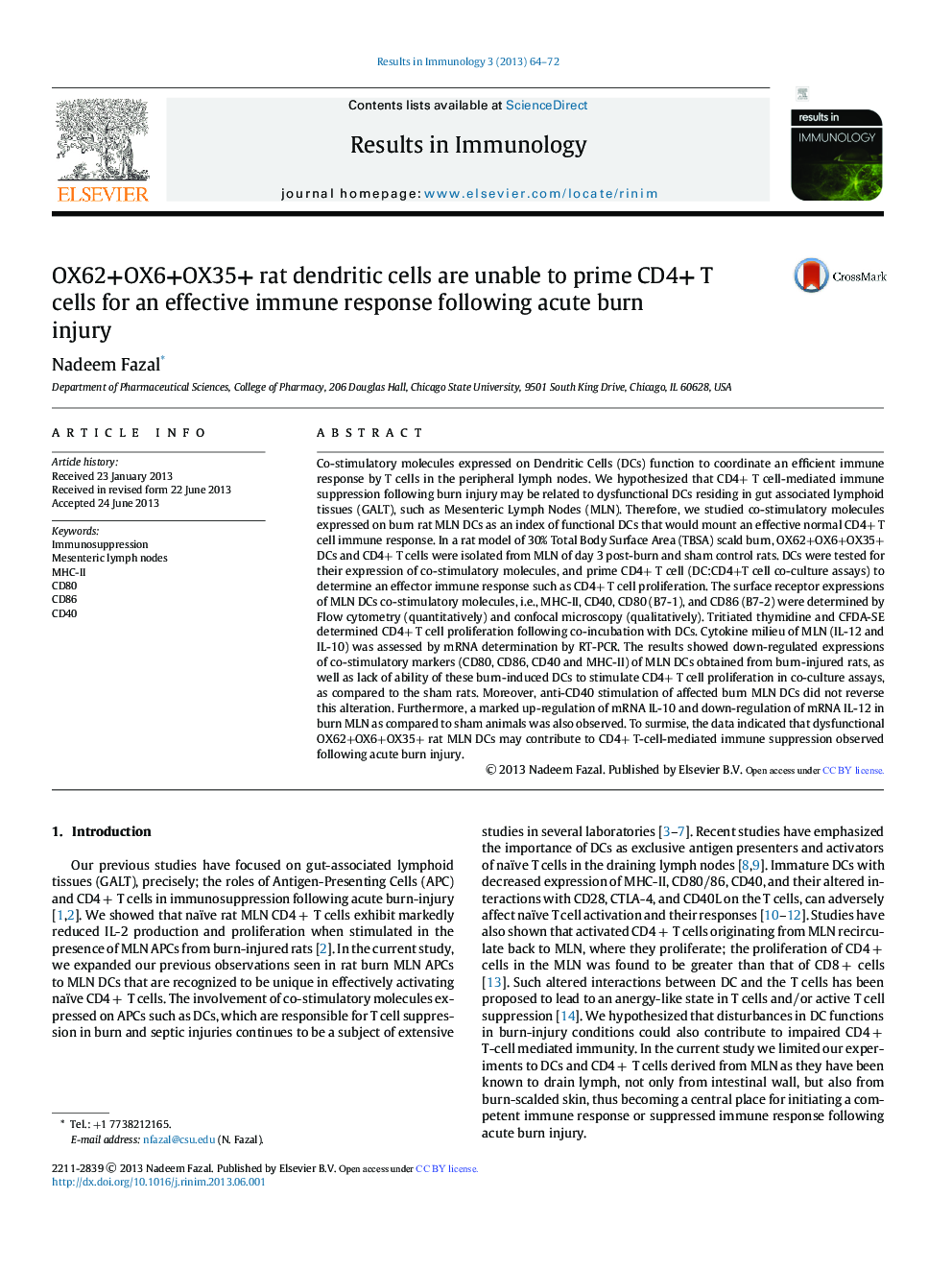| کد مقاله | کد نشریه | سال انتشار | مقاله انگلیسی | نسخه تمام متن |
|---|---|---|---|---|
| 2202370 | 1551336 | 2013 | 9 صفحه PDF | دانلود رایگان |

Co-stimulatory molecules expressed on Dendritic Cells (DCs) function to coordinate an efficient immune response by T cells in the peripheral lymph nodes. We hypothesized that CD4+ T cell-mediated immune suppression following burn injury may be related to dysfunctional DCs residing in gut associated lymphoid tissues (GALT), such as Mesenteric Lymph Nodes (MLN). Therefore, we studied co-stimulatory molecules expressed on burn rat MLN DCs as an index of functional DCs that would mount an effective normal CD4+ T cell immune response. In a rat model of 30% Total Body Surface Area (TBSA) scald burn, OX62+OX6+OX35+ DCs and CD4+ T cells were isolated from MLN of day 3 post-burn and sham control rats. DCs were tested for their expression of co-stimulatory molecules, and prime CD4+ T cell (DC:CD4+T cell co-culture assays) to determine an effector immune response such as CD4+ T cell proliferation. The surface receptor expressions of MLN DCs co-stimulatory molecules, i.e., MHC-II, CD40, CD80 (B7-1), and CD86 (B7-2) were determined by Flow cytometry (quantitatively) and confocal microscopy (qualitatively). Tritiated thymidine and CFDA-SE determined CD4+ T cell proliferation following co-incubation with DCs. Cytokine milieu of MLN (IL-12 and IL-10) was assessed by mRNA determination by RT-PCR. The results showed down-regulated expressions of co-stimulatory markers (CD80, CD86, CD40 and MHC-II) of MLN DCs obtained from burn-injured rats, as well as lack of ability of these burn-induced DCs to stimulate CD4+ T cell proliferation in co-culture assays, as compared to the sham rats. Moreover, anti-CD40 stimulation of affected burn MLN DCs did not reverse this alteration. Furthermore, a marked up-regulation of mRNA IL-10 and down-regulation of mRNA IL-12 in burn MLN as compared to sham animals was also observed. To surmise, the data indicated that dysfunctional OX62+OX6+OX35+ rat MLN DCs may contribute to CD4+ T-cell-mediated immune suppression observed following acute burn injury.
Journal: Results in Immunology - Volume 3, 2013, Pages 64–72